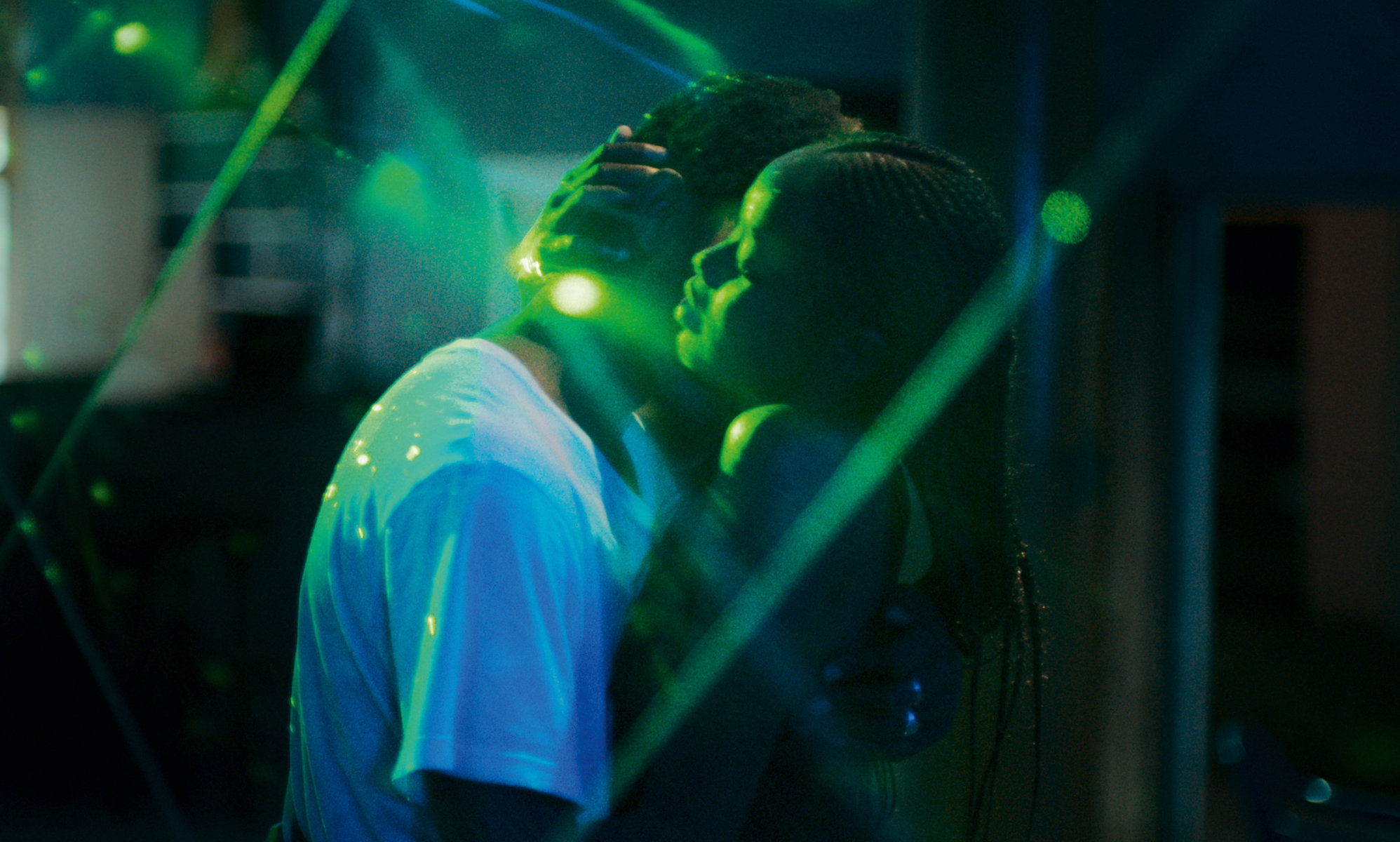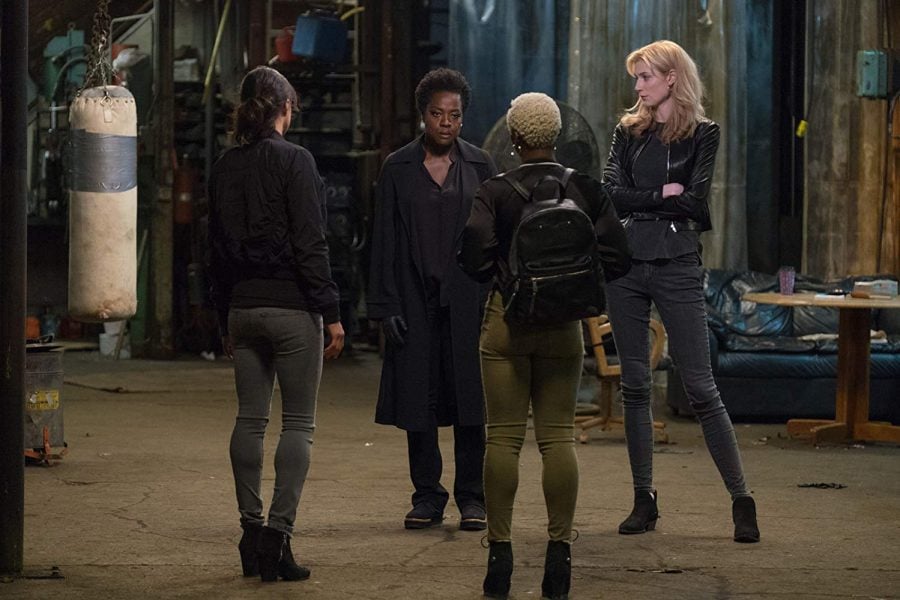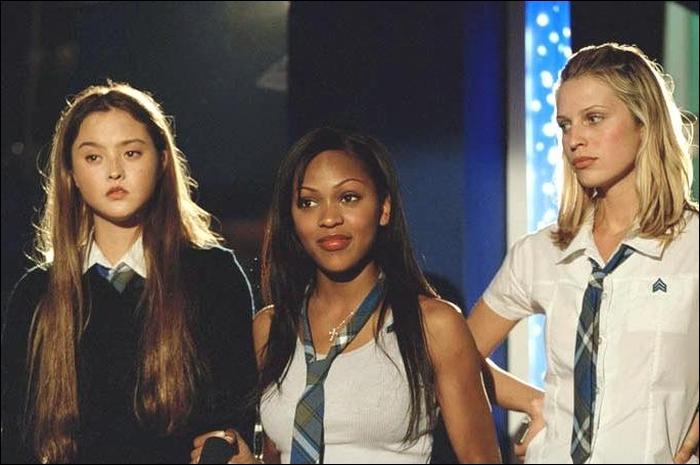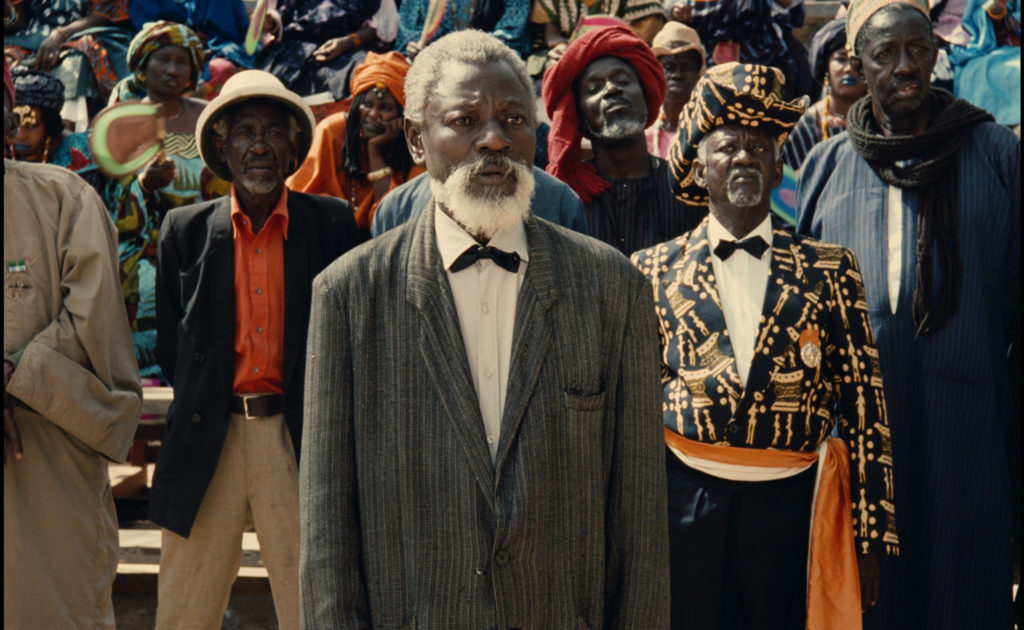
Our partner organization, Films from the Margin, operates to put on display a showcasing of films “from the margin,” often works that are difficult to find, lesser known, and considered hidden gems. From world-famous filmmakers’ smaller, maybe earlier work to a surprising foreign marvel, Films from the Margin aspires to educate and inform viewers of cinematic treasures otherwise hidden by an immeasurable sea of content, while providing hours of gutsy, unique, unforgettable entertainment. This column will feature recommendations of films otherwise considered to be “from the margin,” as well as where one can locate them. For more information on Films from the Margin and how to get involved, drop us a line at filmsfromthemargin.ec@gmail.com
In honor of Black History Month, Latent Images is highlighting films by Black directors who have shaped film history, both in the past, and currently today.

Atlantics (2019, Mati Diop, France)
In our hyper-saturated and hyper-active media landscape, 2019’s unusually restrained and elegiac Atlantics has lingered in my brain longer than most other films I’ve seen in recent years. Preceded only by a string of (very accomplished) short films, Mati Diop’s feature debut feels like a film most artists would make decades deep into their careers. She is that rare artist who possesses supreme confidence in their craft as well as total patience with character and mood. Perhaps the tactility on display in Atlantics is inspired by her work with arthouse legend Claire Denis on 35 Shots of Rum (2008), in which Diop mesmerized as a dutiful daughter yearning for greater vistas. The two filmmakers share a number of skills, namely their keen ability to define spaces and their characters’ relationships to them. However, it would be ill-advised to think of Diop as merely Denis’ student: her voice is wholly original and wholly distinct, her Dakar-set mystery Atlantics being a true breath of fresh air. Diop’s characters are scarred by their dark and often painful histories, yet the present moment is so vividly real, so pregnant with potential joy and pleasure, that it is hard to describe the film as morbid or tragic. Atlantics, while haunted by ghosts of the past, is a tale of new experiences, new love, and new voices that shine brilliantly against that roiling ocean of ancient blue. I apologize for my extremely vague descriptions, but the less you know going in, the better. —Matt Pifko
Atlantics is streaming on Netflix.

Widows (2018, Steve McQueen, United States)
Ten years into Steve McQueen’s career, he turned his storytelling focus to a heist film with Widows. Unlike the vast majority of heist films out there, McQueen’s film features characters who are not in the “business” of thievery. Four women, with nothing in common save for their recently deceased husbands, are forced to carry out a heist that their spouses planned in order to save their own skins. The film comments on racism, upper, middle, and lower class politics, and sexism in a concise and sharp two hours. Despite the antagonistic men on the other side expecting them to fail, these four go above and beyond what was thought of them. Viola Davis rocks the entire performance as Veronica, the leader of the heist and the grieving widow the film is named for, a woman longing to avenge the loss of her family. She holds the film together while working perfectly with her three other castmates, Elizabeth Debicki (Alice), Michelle Rodriguez (Linda), and Cynthia Erivo (Belle). These heroines come from different neighborhoods, different jobs, and even different ways of living, uniting together to reap what their husbands had sowed so that they, and their families, can live a better life. Steve McQueen’s tale of four women fighting to take back control is the perfect landmark film for the revival of the heist genre. —Aidan Collins
Widows is available to rent or buy from iTunes, Amazon, Vudu, and other digital retailers.

Sign o’ the Times (1988, Prince, United States)
This groundbreaking concert film, based on the eponymous album from 1987, knocks down the boundary between live concert and music video. The whole thing is incredibly thrilling, thanks to Prince the (electrifying) performer, indebted to Prince the director. This is a film whose world and narrative exist entirely within the mind of its creator (though never narcissistic or egocentric, nor self-appreciating) and whose performers are dispensed and focused on with intangible generosity and respect. Adding to Sign o’ the Times’ brilliance is its weaving of pre-recorded video, featuring Prince and Sheena Easton (among more) engaging in their own story; a concert as rigorously cut as Sign o’ the Times would deflate like a balloon if directly cut into, but Prince’s glorious film takes a risk by crafting an equally evocative, mystifying, and mysterious universe to fit right into the concert’s interludes. (It works. Amazingly.) Sheila E. on a pretty sizable drum kit, hammering away during an out-of-this-world drum solo; Eric Leeds and Atlanta Bliss partly making up the horn section, wailing away at their instruments like their lives depend upon it; and Prince taking a seat on the drum kit (after his umpteenth costume change), allowing Sheila E. to spit some jaw-dropping bars, are among some of the film’s spectacular highlights. Sign o’ the Times is one of those real cinematic treasures, considering so few people have witnessed this triumphant achievement, both in 1988 and this very day. Give it a whirl: it’s a wild, wild ride. —Micah Levine
Sign o’ the Times is streaming on Peacock, not behind any paywall. It is also available on PlutoTV and Tubi, for free.

Losing Ground (1982, Kathleen Collins, United States)
Losing Ground is an experiment in time and space, unraveling the tragic, semi-autobiographical story of a decaying relationship through a critical Black-feminist perspective. However, the movie isn’t avant garde: it’s firmly designed for popular audiences. Sara (Seret Scott) is a brilliant but emotionally unfulfilled philosophy professor desperately seeking “ecstatic experiences” through her dissertations, acting as a sharp contrast to her aloofly euphoric artist-husband (in that order), Victor (Bill Gunn). After finishing the movie, I highly recommend listening to an interview with writer/director/co-producer Kathleen Collins on the Criterion Channel, where she outlines her CUNY film course. Each unit goes in-depth on an aspect of filmmaking, such as framing, color, movement, and so forth, in order to slowly build the students’ lexicons until they fully understand and utilize their own cinematic language, resulting in personal, silent films to finish out the class; quite a fitting method for a director whose work explores the physicality of ecstasy and freedom while questioning the philosophical abstractions of art and desire. Unfortunately, Collins, despite being one of the first Black women to direct a feature film, was denied the label — as Victor proudly claims himself to be, upon the sale of his painting — of a “genuine Black success.” Losing Ground, after zero distributors gave it a theatrical output for thirty years, received a loving restoration in 2015 thanks to her daughter, Nina, who raised funds for a proper release. The attention is twenty-seven years too late, however: unfortunately, Collins tragically passed away in 1988. Today, Losing Ground’s legacy serves as a reminder that we need to be constantly evaluating who actually has control over the means of producing narratives of representation. —Harriet Eleanor Baker
Losing Ground is streaming on The Criterion Channel.

D.E.B.S. (2004, Angela Robinson, United States)
During the golden age of cheesy rom coms, a radically fun camp masterpiece saturated with bright colors and high school drama came along to put the rest to shame. D.E.B.S., directed by Angela Robinson, is centered around four teenage spies who work for the espionage agency of the same name, D.E.B.S. — or, Discipline, Energy, Beauty, Strength — and utilize their sharp and deadly talents to capture the bad guy. However, when lead D.E.B. Amy (Sara Foster) falls in love with their next assignment, super-criminal Lucy Diamond (Jordana Brewster), all hell breaks loose. Only the third Black woman to direct a feature film with major studio backing, Robinson wrote, directed, and edited D.E.B.S., resulting in a magnificent absence of the male gaze. Celebrating lesbian joy without the objectification that can come along with a man behind the camera, this film’s historically low ratings from mainstream audiences makes me wonder if people were just shocked to see lesbians portrayed in a film that didn’t laugh at them, but with them. A cult hit with a comedic flair that secures its status as an underground LGBT favorite, D.E.B.S.’s respect for its two love birds set a precedent that is still felt today. —Annie Wojnarowski
D.E.B.S. is available to rent on iTunes, Amazon, Vudu, and other digital retailers.

Hyenas (1992, Djibril Diop Mambéty, Senegal)
Djibril Diop Mambéty’s Hyenas is a devilishly wise critique masked as a local fable. Told from the perspective of a Colonbane shopkeeper (Mansour Diouf), Mambéty’s second (and final) feature takes aim at the colonial mindset that consumed most of the African continent. Just as the shopkeeper’s stature in the town is beginning to be rewarded, an elderly aristocrat (Ami Diakhate), born and raised in Colonbane, returns with a promise: she will split her fortune amongst the people, but only in exchange for the murder of the shopkeeper. How the humble shopkeeper and aristocrat know each other, I won’t spoil, but it is intimately intertwined with the shopkeeper’s role in the community at large. Mambéty’s storytelling is absolutely nail-biting here, perfectly blending his symbolic imagery with a storyline that is constantly twisting and turning. Unlike the director’s brilliant debut, Touki Bouki, Hyenas has a surprisingly twisted humor that grounds the work in tragicomedy and makes it the more accessible of the two feature-length works. This might be for the best, because Hyenas’ accessibility makes it an instant crowd-pleaser with an empathetic edge that could only be produced by a director at the height of his craft. —Aaron Homem
Hyenas is streaming on Kanopy, Mubi, and available for rental on iTunes.